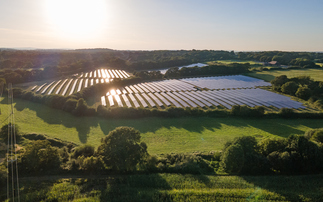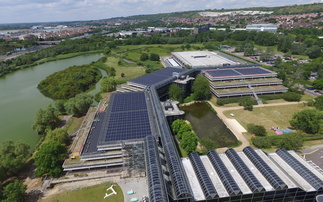Solar giants urge end to escalating trade war
By Jifan Gao (Chairman & CEO Trina Solar), Dr. Zhengrong Shi (Executive Chairman & CSO Suntech), Liansheng Miao (Chairman & CEO Yingli Green Energy) and Dr Shawn Qu (Chairman, President & CEO Canadian...
To continue reading this article...
Join BusinessGreen
In just a few clicks you can start your free BusinessGreen Lite membership for 12 months, providing you access to:
- Three complimentary articles per month covering the latest real-time news, analysis, and opinion from Europe’s leading source of information on the Green economy and business
- Receive important and breaking news stories via our daily news alert
- Our weekly newsletter with the best of the week’s green business news and analysis






